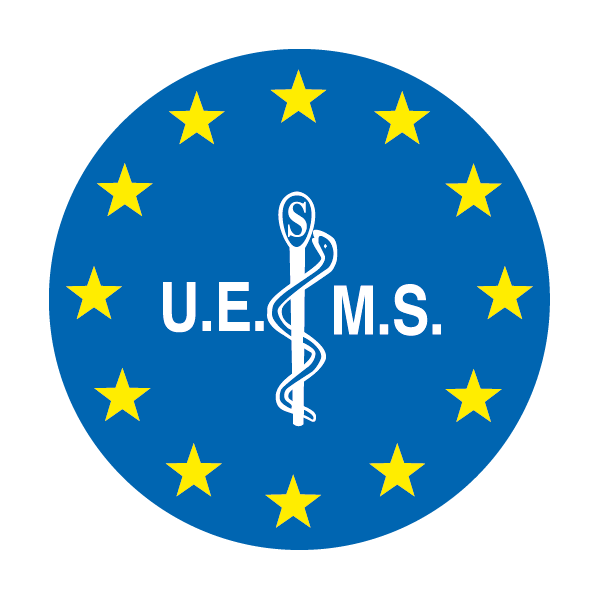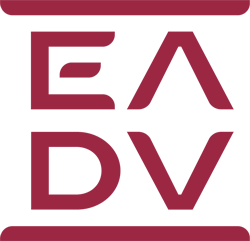Credits and Certificates
EADV CONGRESS 2025
Continuing Medical Education
Continuing Professional Development (CME-CPD)


The EADV Congress 2025, Paris, France, 17-20 September 2025, has been accredited by the European Accreditation Council for Continuing Medical Education (EACCME®) with 26 European CME credits (ECMEC®s)
Each medical specialist can claim only those hours of credit actually spent in the educational activity (as recorded by the scanning process). Here below please find the breakdown of credits per day:
| Wednesday, 17 September 2025 | 6.5 credits |
| Thursday, 18 September 2025 | 6.5 credits |
| Friday, 19 September 2025 | 6.5 credits |
| Saturday, 19 September 2025 | 6.5 credits |
The accreditation system is based on 1 ECMEC per hour.
No credits is guaranteed by the EADV to delegates participating in the following sessions: industry sessions, subspecialty sessions, allied healthcare professionals workshop, ePoster showcases, and EADV Games.
How to gain your CME-CPD credits
The EADV offers individual CME-CPD participation through the attendance of a scientific session (either onsite or through the virtual platform ) and the speaker/session evaluation that will be available for 3 months after the end of the EADV Congress.
- Scan your badge as you pass through the entrance of each session hall, your data will be then transmitted to the system (or access the session online on-demand).
- Complete the anonymous online evaluation for each attended session. Access the evaluation system in the “My Area” section on the Congress Platform.
How to evaluate sessions
How to evaluate sessions
- Sign in by entering the email address and the password used
to register to the EADV Congres.- If you are an EADV Member, use your member login. Do not create a new profile.
- Once logged in, select the box Certificates, or visit the My Area page
- In the evaluation section you will find all the lectures you attended.
- Rate the sessions and give your comments before 31 December of the same year (end of the on-demand window)
>Evaluation data is essential to our statistics and is of considerable help in the choice of future topics and speakers.
Your feedback and comments are greatly appreciated.
- Virtual and on-demand sessions are accredited. The system will detect the on-line viewing time of session.
Conversion of credits
Through an agreement between the European Union of Medical Specialists and the American Medical Association, physicians may convert EACCME® credits to an equivalent number of AMA PRA Category 1 Credits™. Information on the process to convert EACCME® credit to AMA credit can be found at https://edhub.ama-assn.org/pages/applications
Live educational activities, occurring outside of Canada, recognised by the UEMS-EACCME® for ECMEC®s are deemed to be Accredited Group Learning Activities (Section 1) as defined by the Maintenance of Certification Program of The Royal College of Physicians and Surgeons of Canada.
Information regarding the conversion of EACCME® credits
Credit will be converted based on one (1) hour of participation equalling one credit for all activities. Physicians wishing to convert EACCME® credits to AMA PRA Category 1 Credit™ will be required to access the AMA website at https://edhub.ama-assn.org/pages/applications to obtain the necessary paperwork and instructions. Physicians and other healthcare professionals will be required to pay a processing fee to the AMA.
For other countries, please contact the relevant national/regional accreditation authority
Certificates
All registered participants will be able to download their certificates online based on their level of engagement:
- A Certificate of Attendance is available for all registered participants who have a valid registration badge and attended at least 1 session.
- A CME-CPD Certificate is available for all participants who actively attended scientific sessions, have their badge scanned and completed the online evaluation forms *.
- An ePoster Certificate is available for all leading ePoster authors
- An Oral Presentation Certificate is available for all presenters of an abstract accepted for an oral presentation.
- A Speaker Presentation Certificate is available for all presenters who have delivered a lecture in a scientific session
How to download certificates
During the congress and on-demand
You can find your certificates in the Virtual Platform, under the My Area section.
After the on-demand window and for past events
Find your certificates, along with your registration and membership invoices in your Profile section on MyEADV.
If you have any further questions about CME Accreditation or Certificates, please contact us
